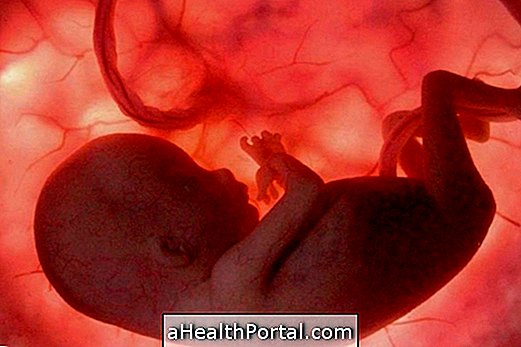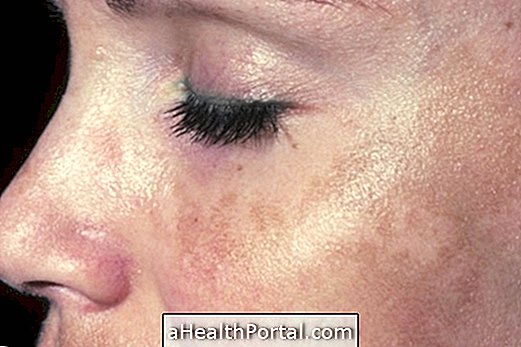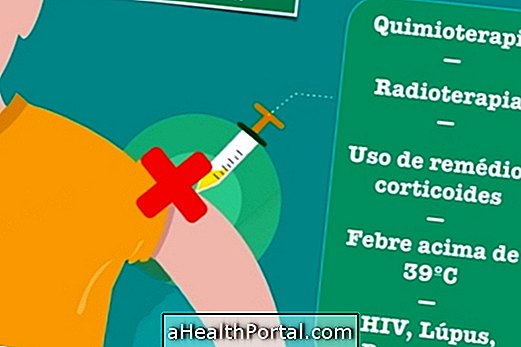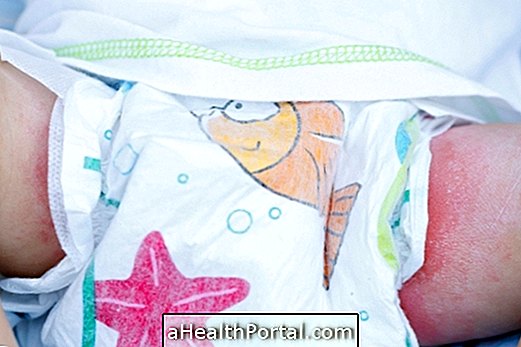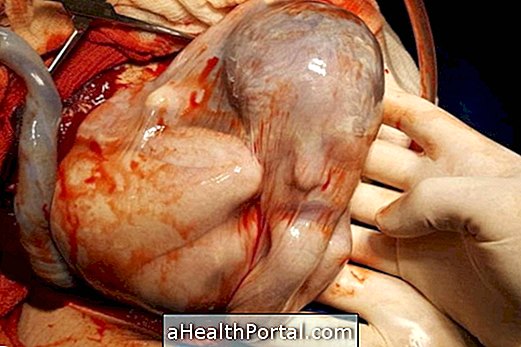Rubella is a relatively common childhood disease that, when it first appears in pregnancy, can cause malformations in the baby, such as microcephaly, deafness, or changes in the eyes. Thus, the ideal is for the woman to get the vaccine against the disease before becoming pregnant.
The rubella vaccine is usually taken in childhood, but women who do not have the vaccine or booster dose should be vaccinated prior to becoming pregnant. After taking the vaccine the woman should wait at least 1 month to start trying to get pregnant. Learn more about the rubella vaccine.
Rubella is an infectious disease caused by the Rubivirus type virus, which is usually transmitted through secretions such as saliva, in intimate contacts and kisses. Usually children and young adults are the most infected, which aggravates the chances of acquiring the disease during pregnancy.
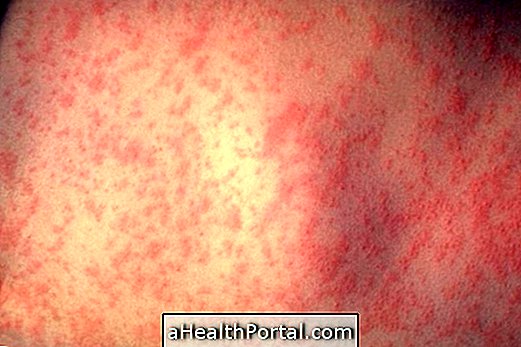
Main symptoms
The symptoms of rubella in pregnancy are similar to those shown by anyone who develops the disease:
- Headache;
- Muscle pain;
- Low fever up to 38ºC;
- Cough with catarrh;
- Joint pain;
- Swollen glands or anus, especially near the neck;
- Small red spots on the face that then spread all over the body and last for about 3 days.
Symptoms may take up to 21 days to appear, but transmission of the virus can occur 7 days before the onset of symptoms up to 7 days after the appearance of red patches on the skin.
How to confirm the diagnosis
In some cases rubella may not present any symptoms and therefore, its diagnosis can only be confirmed by the presence of IgM or IgG immunoglobulins in the blood test.
Possible consequences of rubella
The consequences of rubella in pregnancy are related to congenital rubella, which can lead to miscarriage or severe fetal malformations such as:
- Deafness;
- Changes in the eyes such as blindness, cataract, microphthalmia, glaucoma and retinopathy;
- Cardiac problems such as pulmonary artery stenosis, ventricular septal defect, myocarditis
- Injuries to the nervous system such as chronic meningitis, vasculitis with calcification
- Mental retardation;
- Microcephaly;
- Purple;
- Hemolytic anemia;
- Meningoencephalitis;
- Problems in the liver such as fibrosis and transformation of giant hepatic cells.
These changes can happen when the woman has rubella during pregnancy or when she takes the rubella vaccine during pregnancy. The risk of transmission of rubella to the baby is greater in the first trimester of pregnancy and if this happens the baby should be born with congenital rubella. Learn all about congenital rubella.
Higher complications are observed when the baby is affected in the first trimester of gestation. Usually fetal changes are seen in the examinations performed during pregnancy and soon after birth, but some changes can only be diagnosed in the first 4 years of the child's life. Some of these manifestations that may be discovered later are Diabetes, Panencephalitis and Autism.
See in a simple way what microcephaly is and how to take care of a baby with this problem by watching the following video:

How to tell if your baby has been affected
In order to know whether the baby was affected by the rubella virus when the mother was infected during pregnancy or if the mother took the rubella vaccine during pregnancy, the prenatal and all necessary examinations should be performed to evaluate the development of the rubella vaccine. organs and tissues of the baby.
The morphological ultrasound, usually performed between 18 and 22 weeks of gestation, can indicate if there is cardiac malformation or brain lesions, however, some changes can only be seen after birth, as is the case of deafness, for example.
The diagnosis of congenital rubella can be made through a blood test that identifies positive IgM antibodies to rubivirus up to 1 year after birth. This change can be observed only after 1 month of birth and therefore in case of suspicion, the examination should be repeated after this date.
How is the treatment done?
The treatment of rubella in pregnancy is to control the symptoms that the woman feels because there is no specific treatment that can cure rubella. Usually the treatment is done with medicines to control fever and analgesics, such as paracetamol, associated with rest and fluid intake by the pregnant woman.
The best form of prevention is to perform triple-virus vaccination against measles, mumps and rubella for at least 1 month before you become pregnant. You should also avoid being around people who are transmitting the disease or children who are infected with rubella.



